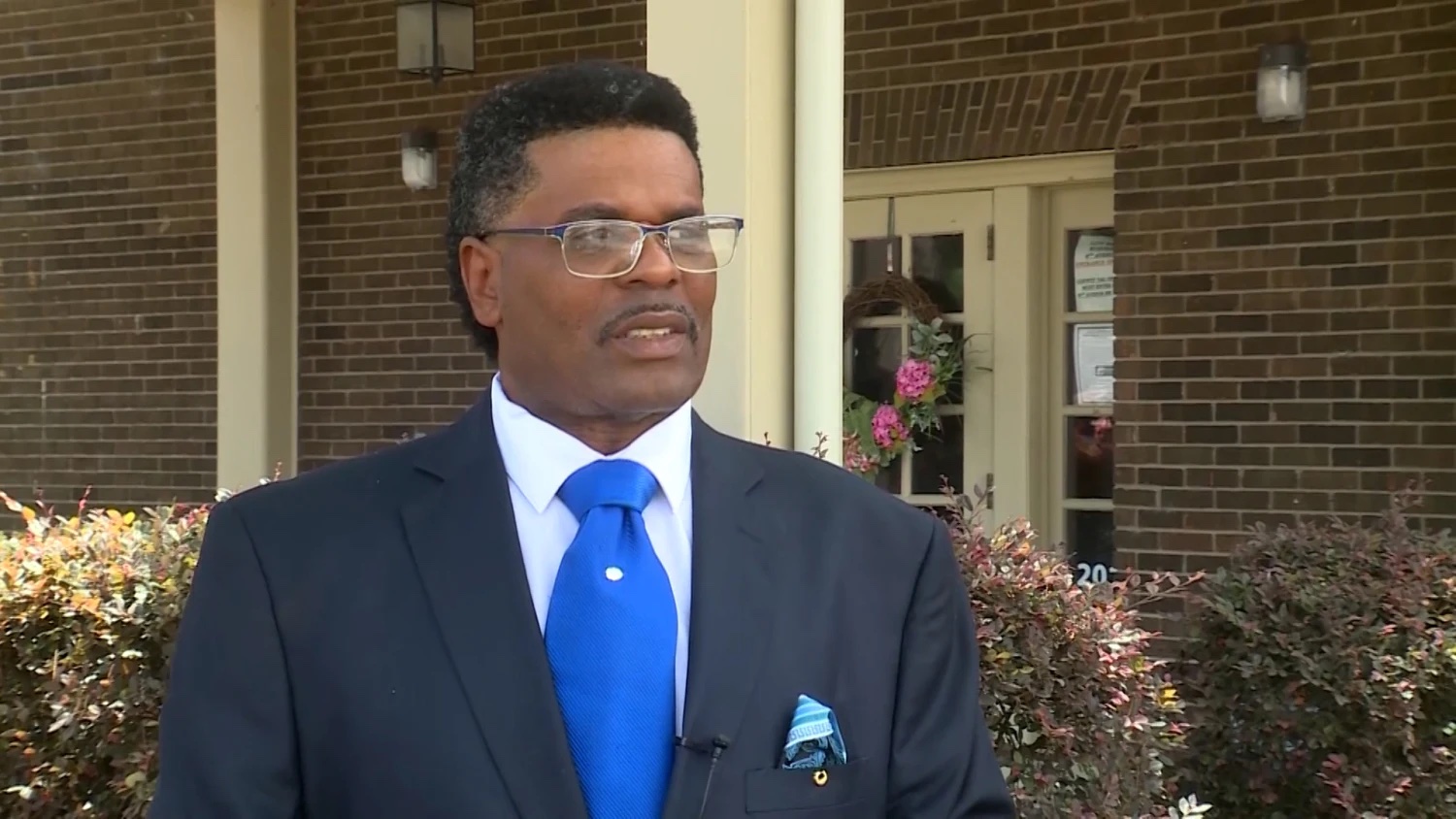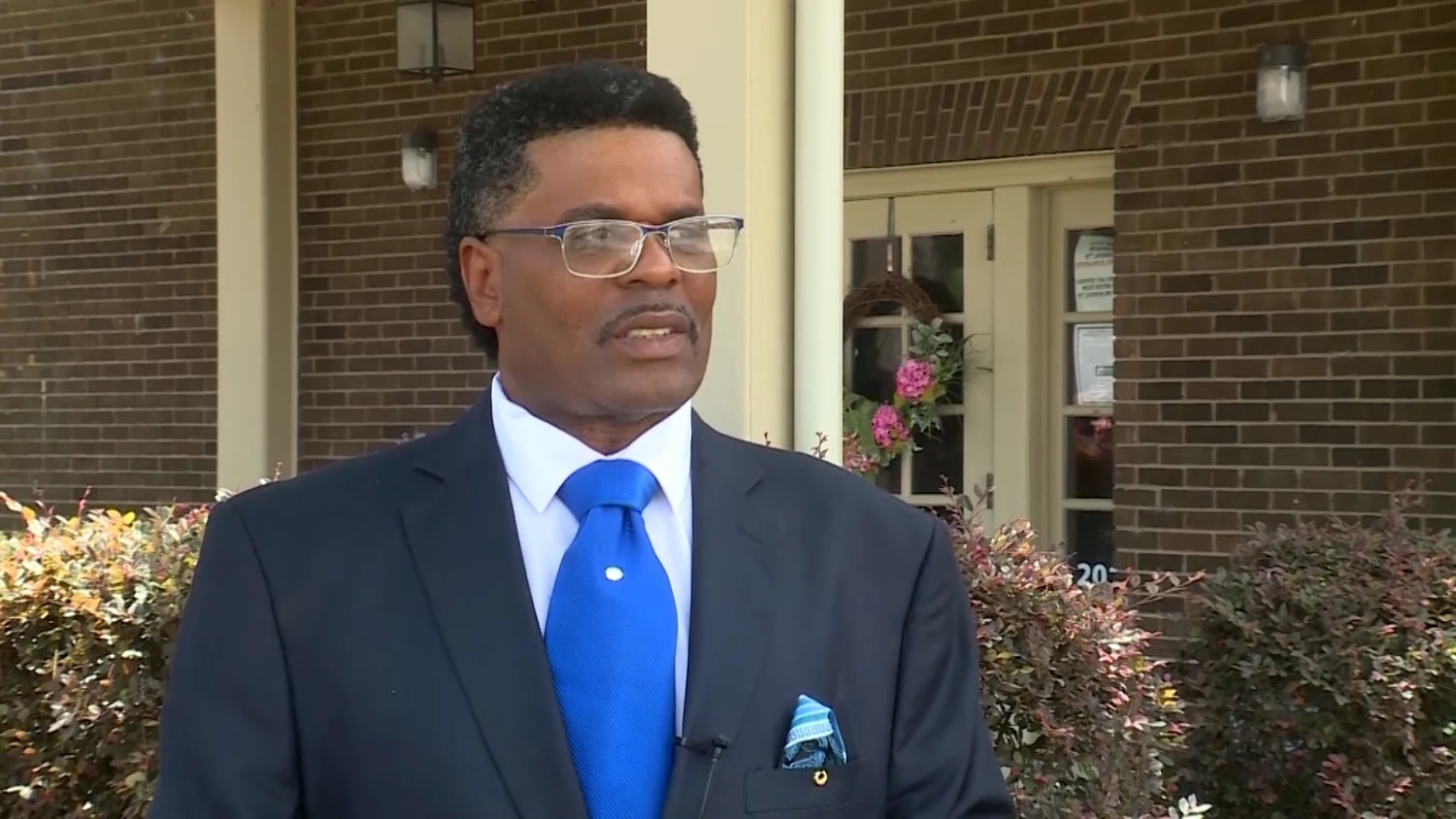From the Atlanta Daily World:
 Attorneys for Pastor Michael Jennings, the Childersburg pastor who was arrested while watering his neighbors flowers, won a huge victory today with a federal appeals court reversing a lower court’s decision to dismiss Jennings’ lawsuit against the City of Childersburg and the three officers who illegally arrested him saying the officers “lacked even arguable probable … Continued
Attorneys for Pastor Michael Jennings, the Childersburg pastor who was arrested while watering his neighbors flowers, won a huge victory today with a federal appeals court reversing a lower court’s decision to dismiss Jennings’ lawsuit against the City of Childersburg and the three officers who illegally arrested him saying the officers “lacked even arguable probable … Continued
The post Black Pastor Arrested Watering Neighbor’s Flowers Wins Appeal appeared first on Atlanta Daily World.


Good. I saw the video, watched the ATA analysis, this was ridiculous all around. A neighbor called about some black guy on their neighbor’s property when they were put of town, so the police went to check it out and approach him to investigate, which is fair enough. The guy answered all of the officer’s questions, explained that he had permission to be there, that he was asked to water the flowers by the home owner, gave his name, that he lived across the street, etc. And yet he was still arrested because he refused to provide an id. There is no legal requirement to provide physical id to the police unless you are driving and must show your drivers license. You are only required to identify yourself when under arrest, and even then it only requires you give your name and address which can be done verbally, and he had already done so.
The police are allowed to investigate and detain in the process of that investigation if they have reasonable suspicion of a crime. But that detainment must end once that suspicion is dispelled. And they cannot arrest unless that suspicion rises to the level of probable cause which requires a higher level of evidence. In this case, they had reasonable suspicion to detain the pastor based on the anonymous call. However, that became dispelled pretty quickly when they find a man watering flowers who identifies himself, tells them where he lives, says that this is not his property but his neighbor’s, and that he was asked to be there and water the flowers by the owner. At that point, barring any other evidence, they should have ended the detention. They could still talk to him, or pull back and monitor from their vehicle, or just leave. But they could not demand id, and could not arrest him for refusing to do so.
The lower court argued that their suspicion was not reasonably dispelled by their observations and his explanations. They said that becuase anyone in the process of a crime could pick up a hose and pretend to be allowed there, the police still had reasonable suspicion. But there are two problems with that argument. 1) Their anonymous call was about an unknown man on the neighbor’s property. That is all the evidence that they had that a crime may be in process and that is not a high bar of evidence. Barring any other evidence observed on the property (like broken windows, the removal of property from the home, etc.), of which there was none, his explanation was suitable to dispell the only reasonable suspicion that they had, a 3rd party who was unfamiliar with the person on another’s property. Also, short of tracking down the owner who was out of town, contacting them and asking if the pastor was allowed there, what other channels beyond his story and their observations were they going get to dispell their suspicions? 2) Getting a physical id from the man would not have provided any more context for his presence or support for or against his claim that he was allowed to be there. And as he was not required to show his physical id in these circumstances, that failure to provide id on request cannot extend the detention beyond the point that they no longer have reasonable suspicion of a crime. Though they may request id from anyone, they may not detain you nor arrest you predicated only on your unwillingness to provide it (excluding providing a drivers license when driving). So whatever argument there is to be made that they should still have been suspicious, that does not support his continued detention, let alone his unlawful arrest.
You forgot that he was being black in public. That alone is reasonable suspicion for most cops.
That certainly contributes to it, but all you really have to do is not bend over and spread your cheeks to their authority and then your rights (and maybe your life) are forfeit.